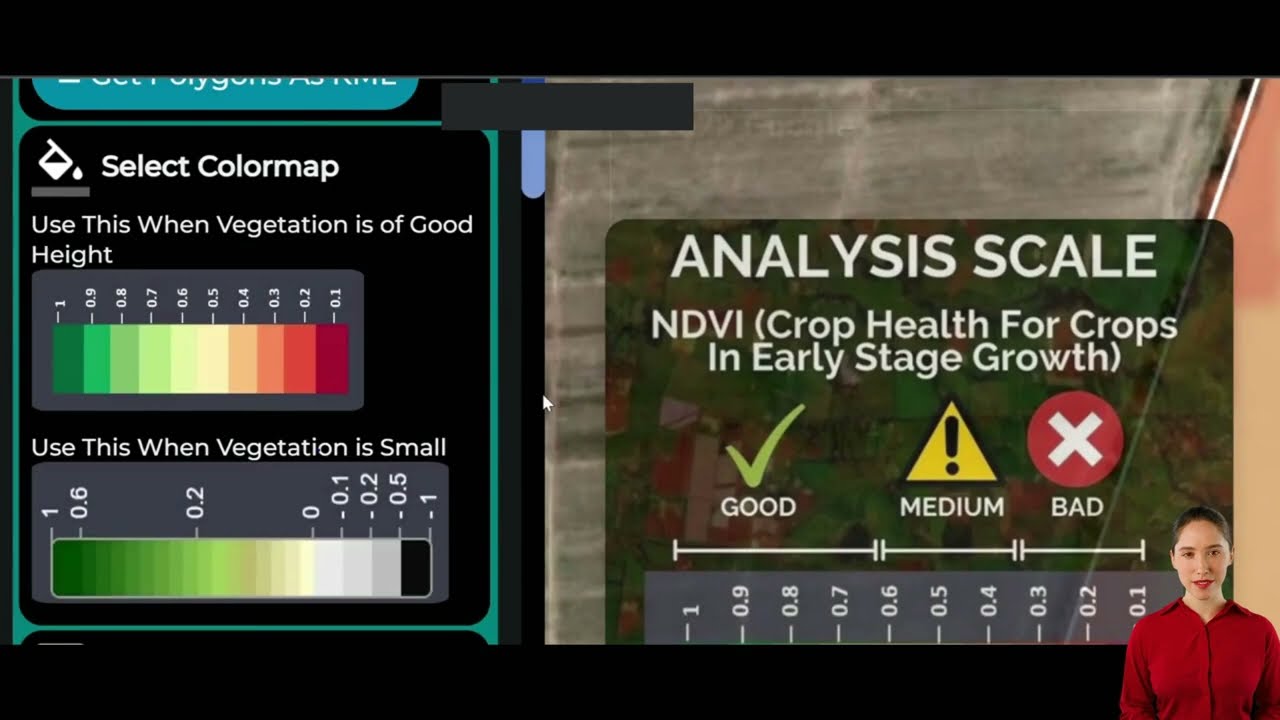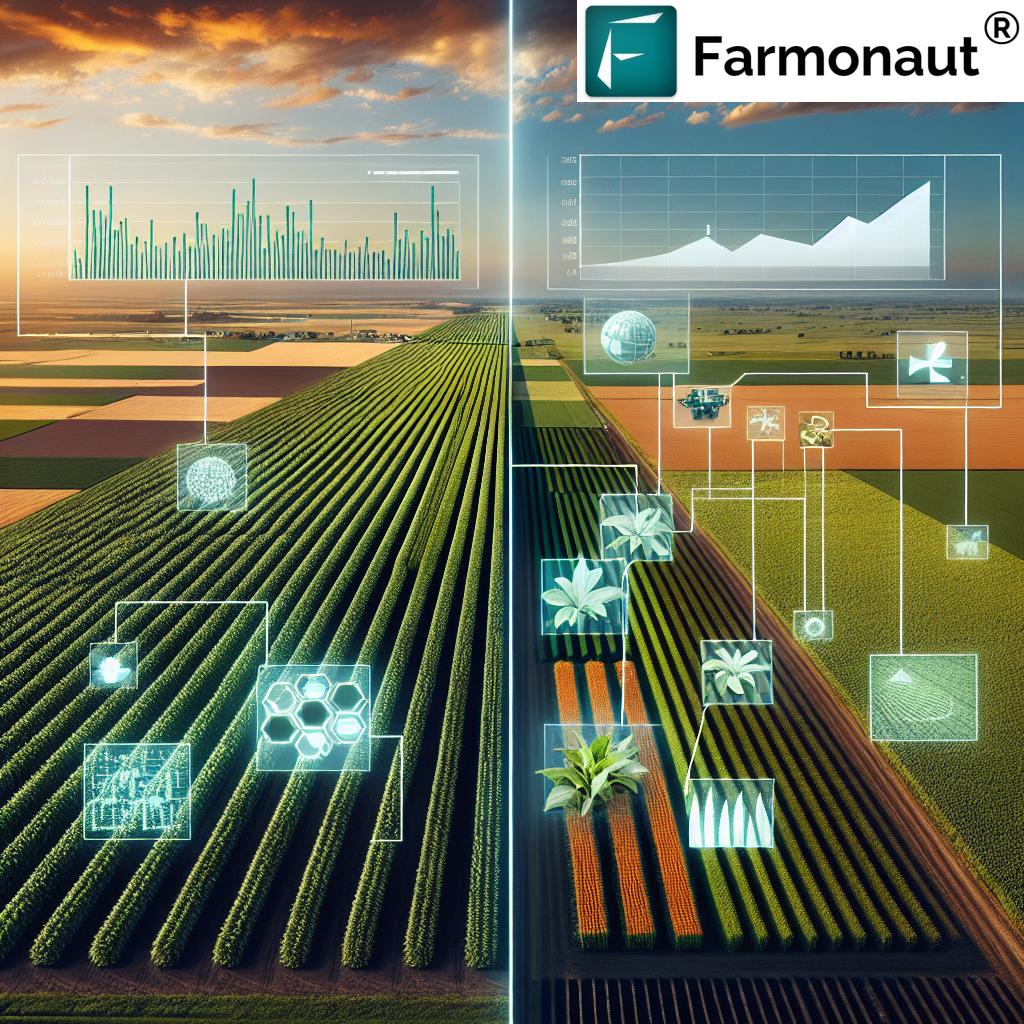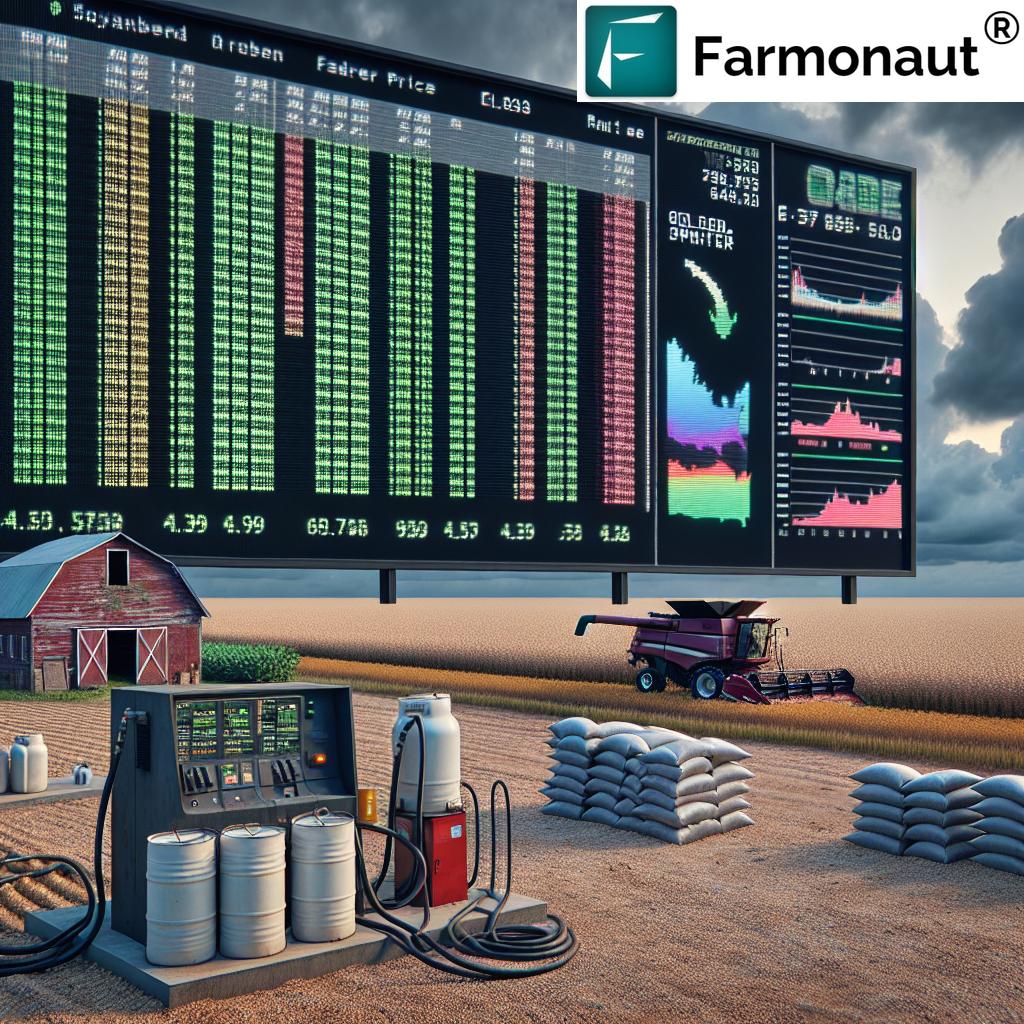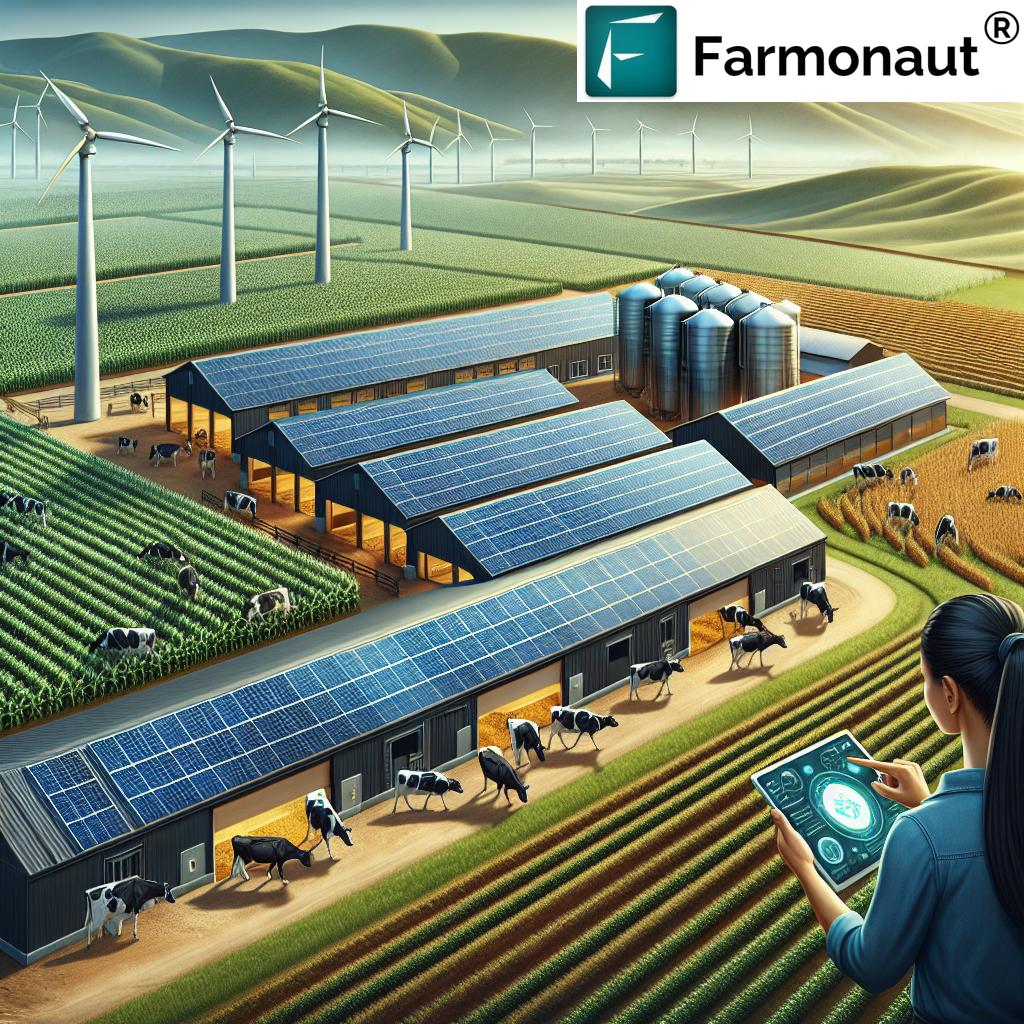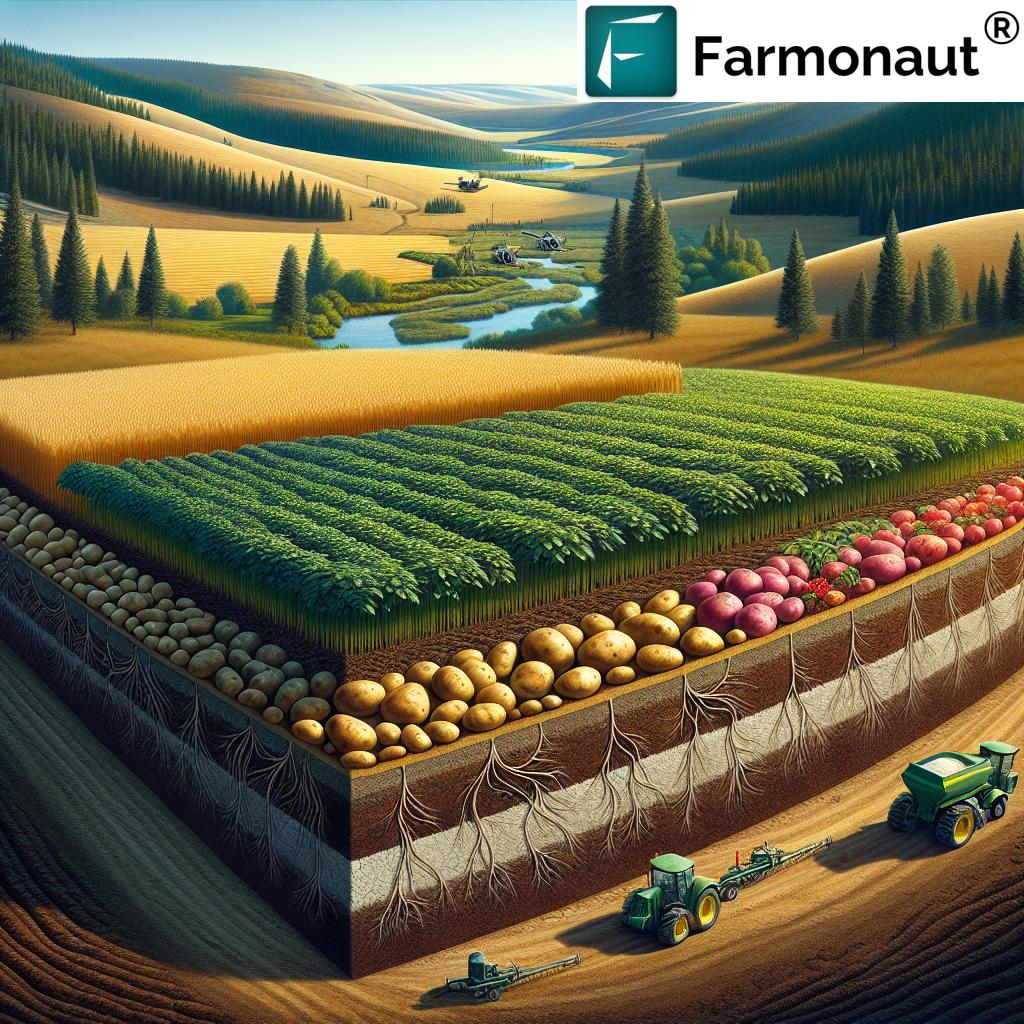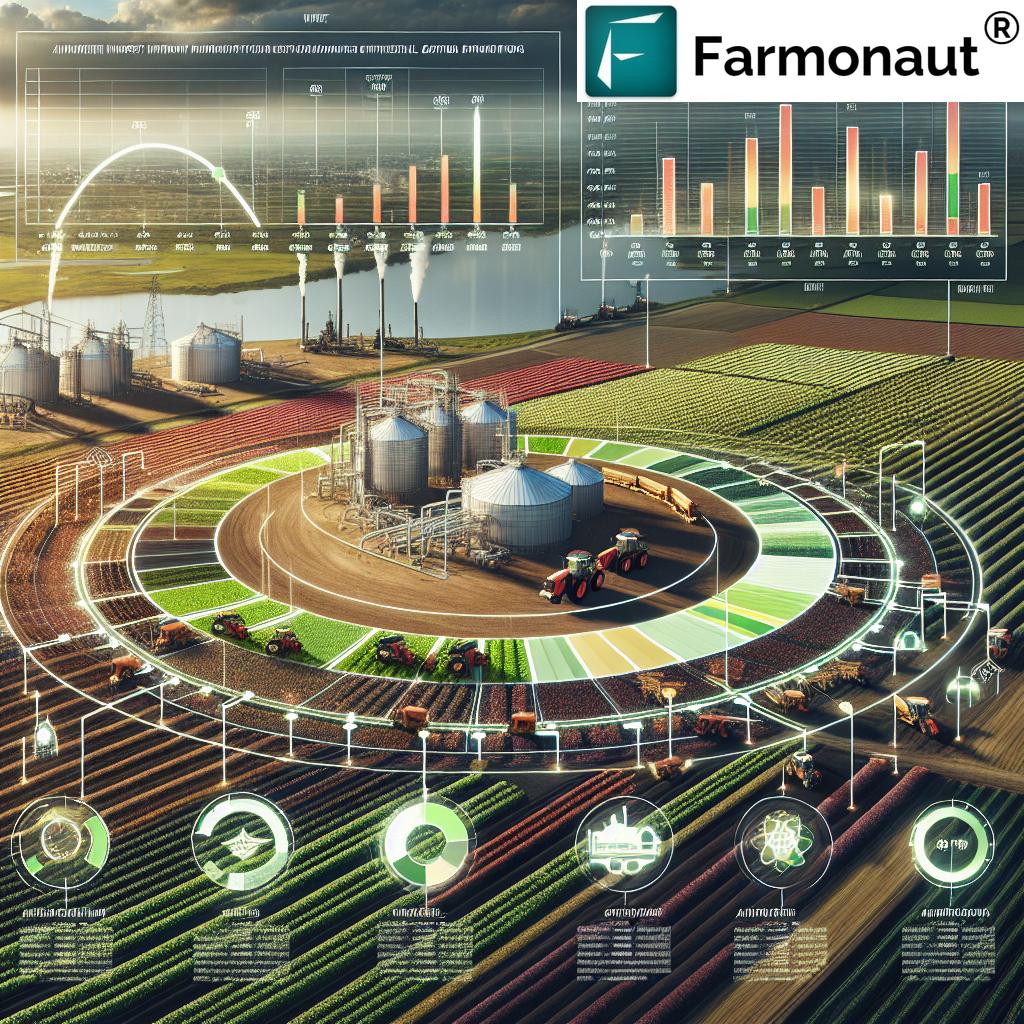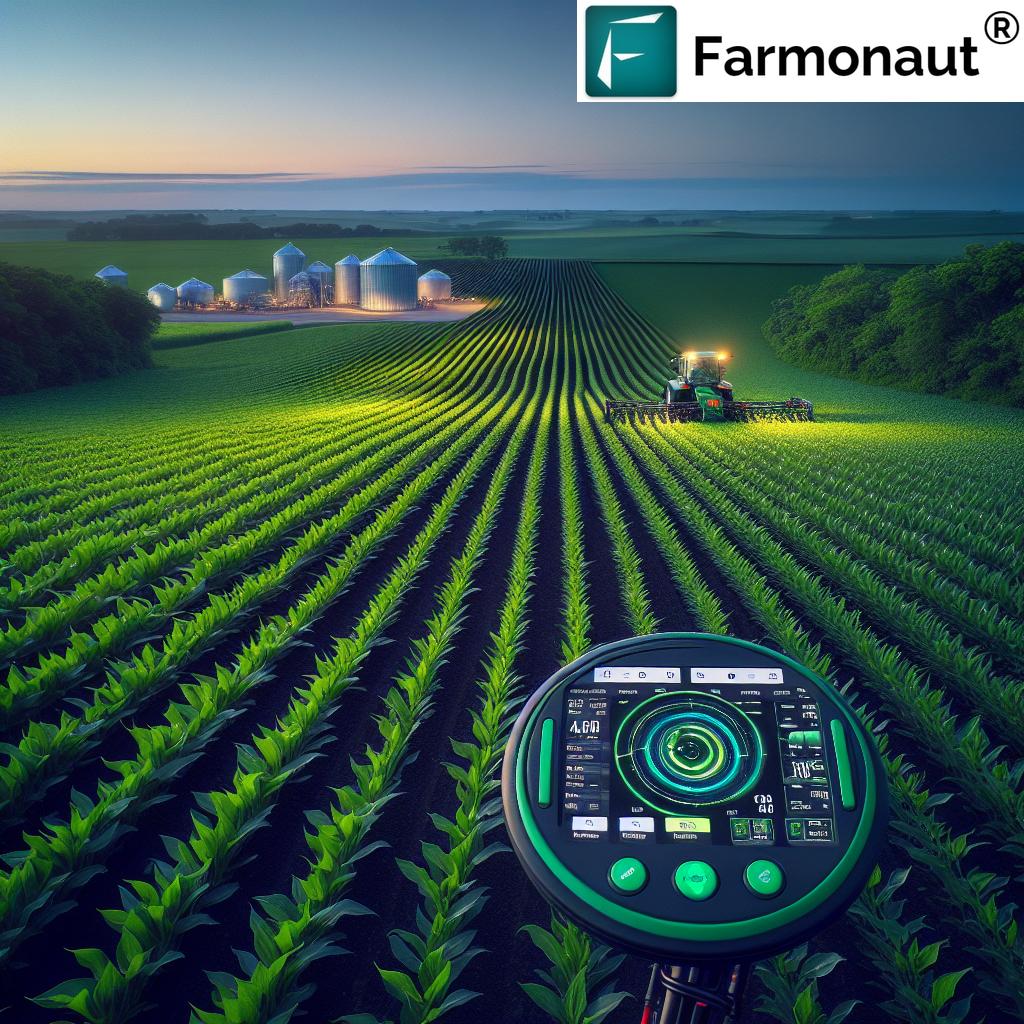Revolutionizing Indiana Agriculture: Smart Farming Solutions and Sustainable Practices for Rural Development
“Indiana’s House committees review an average of 1,000+ agriculture-related bills per legislative session, shaping farming policies.”
As we delve into the exciting world of agricultural innovation and policy in Indiana, we find ourselves at the forefront of a revolution that’s reshaping the farming landscape. In this comprehensive exploration, we’ll uncover how agricultural policy and rural development initiatives are paving the way for a more sustainable and technologically advanced future in the Hoosier State.
The Legislative Landscape: Shaping the Future of Farming
The recent announcement of committee assignments for the 2025 Indiana legislative session has set the stage for significant developments in the agricultural sector. With key figures like State Representative Hunter Smith (R-Zionsville) appointed to crucial committees, including the House Agriculture and Rural Development Committee, we’re poised to witness a new era of agricultural legislation.
These appointments, occurring biennially and lasting throughout representatives’ two-year terms, play a pivotal role in crafting policies that will impact farmers, rural communities, and the broader agricultural industry. As we look ahead, it’s clear that sustainable farming practices and environmental conservation in farming will be at the forefront of legislative discussions.

Smart Farming Solutions: The Technological Revolution
As legislative committees convene, one of the key topics on the agenda is the integration of smart farming solutions into Indiana’s agricultural practices. Precision agriculture technology is revolutionizing the way farmers manage their crops and resources, leading to increased efficiency and sustainability.
- Satellite-Based Crop Monitoring: Advanced systems like those offered by Farmonaut are enabling farmers to monitor crop health in real-time, optimizing resource allocation and improving yields.
- AI-Driven Advisory Systems: Artificial intelligence is playing a crucial role in providing personalized farm management advice, helping farmers make data-driven decisions.
- Blockchain for Traceability: The implementation of blockchain technology in agriculture is enhancing supply chain transparency and product traceability.
These technological advancements are not just improving farm productivity; they’re also aligning with environmental conservation efforts, a key focus of the House Environmental Affairs Committee.
Sustainable Practices: Balancing Production and Conservation
The intersection of agriculture and environmental stewardship is a critical area of focus for Indiana’s lawmakers. Sustainable farming practices are being increasingly recognized as essential for long-term agricultural success and environmental preservation.
- Soil Health Initiatives: Programs promoting soil conservation and organic matter enrichment are gaining traction.
- Water Management: Precision irrigation systems and water-saving techniques are being incentivized through policy measures.
- Carbon Footprint Reduction: Initiatives to help farmers monitor and reduce their carbon emissions are being explored, with technology playing a key role.
“Smart farming solutions have increased crop yields by up to 15% in Indiana’s rural communities over the past 5 years.”
Rural Development: Strengthening the Backbone of Indiana Agriculture
Rural development initiatives are integral to the future of Indiana’s agricultural sector. The House Agriculture and Rural Development Committee is focusing on strategies to revitalize rural communities and support the farmers who form the backbone of the state’s economy.
- Infrastructure Improvements: Enhancing rural broadband access to facilitate the adoption of smart farming technologies.
- Educational Programs: Developing agricultural education initiatives to equip the next generation of farmers with essential skills.
- Economic Diversification: Supporting agritourism and value-added agricultural enterprises to boost rural economies.
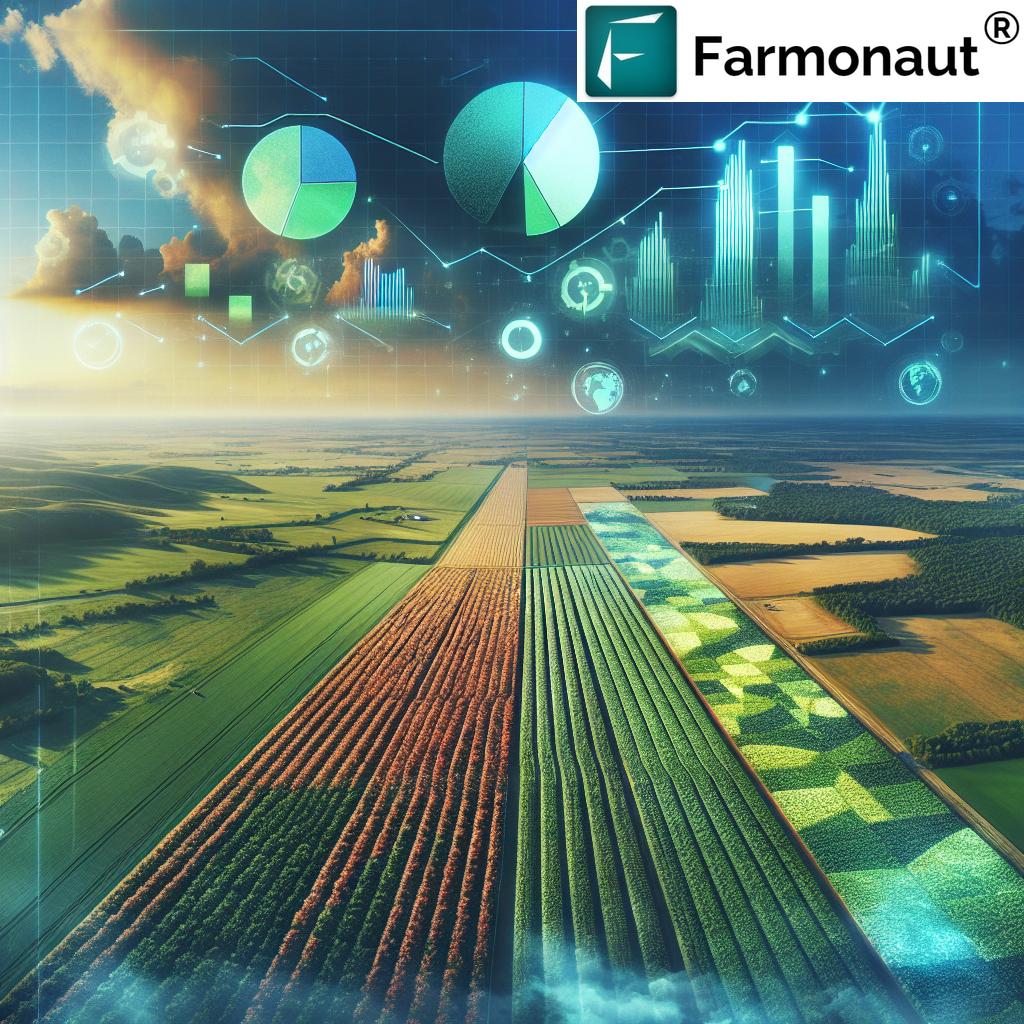
The Role of Technology in Modern Farming
As we navigate the complexities of modern agriculture, it’s clear that technology plays a pivotal role. Platforms like Farmonaut are at the forefront of this technological revolution, offering innovative solutions that align with legislative goals for sustainable and efficient farming practices.
Key Technological Advancements:
- Real-time crop health monitoring through satellite imagery
- AI-powered farm management advice
- Blockchain-based supply chain traceability
- Resource optimization tools for improved sustainability
These advancements are not just theoretical; they’re being actively implemented across Indiana’s farmlands, transforming the way agriculture is practiced.
Legislative Impact on Indiana Agriculture
| Legislative Area | Current Policy Status | Proposed Changes | Potential Impact on Farmers | Environmental Considerations | Economic Implications |
|---|---|---|---|---|---|
| Smart Farming Initiatives | Limited state-level support | Increased funding for technology adoption | Improved access to precision agriculture tools | Reduced resource waste and environmental impact | Potential for increased profitability and efficiency |
| Crop Monitoring Regulations | Voluntary participation | Incentives for satellite-based monitoring | Better crop management and yield prediction | Enhanced ability to detect and mitigate environmental issues | Cost savings through optimized resource use |
| Farm Management Software Adoption | No specific policies | Tax credits for software investments | Streamlined operations and data-driven decision making | Improved tracking of environmental metrics | Enhanced farm productivity and profitability |
| Environmental Conservation Measures | Basic conservation requirements | Expanded incentives for sustainable practices | Potential for new revenue streams through conservation programs | Significant positive impact on soil and water quality | Long-term sustainability of agricultural operations |
| Rural Infrastructure Development | Limited rural broadband access | Major investment in rural connectivity | Improved access to digital farming tools and markets | Potential for more efficient, environmentally friendly practices | Economic growth and diversification in rural areas |
The Integration of Precision Agriculture Technology
Precision agriculture technology is at the heart of Indiana’s agricultural evolution. These advanced tools are enabling farmers to make more informed decisions, leading to improved crop yields and reduced environmental impact.
Benefits of Precision Agriculture:
- Optimized use of water, fertilizers, and pesticides
- Increased crop yields through targeted interventions
- Reduced environmental footprint of farming operations
- Enhanced ability to adapt to changing climate conditions
Platforms like Farmonaut are making these technologies accessible to farmers of all scales, democratizing access to advanced agricultural tools.
Environmental Conservation in Farming: A Legislative Priority
As the House Environmental Affairs Committee tackles the challenges of balancing agricultural productivity with environmental stewardship, several key initiatives are taking shape:
- Soil Health Programs: Encouraging practices that improve soil structure and fertility.
- Water Conservation Measures: Implementing policies to protect water resources and improve irrigation efficiency.
- Biodiversity Protection: Developing strategies to maintain ecological balance in agricultural areas.
These initiatives are not just beneficial for the environment; they also contribute to the long-term sustainability and profitability of Indiana’s farms.
The Future of Farm Management: Software and AI
Farm management software is becoming an indispensable tool for modern farmers. These sophisticated platforms integrate various data sources to provide comprehensive insights into farm operations.
Key Features of Advanced Farm Management Software:
- Real-time crop monitoring and analysis
- Weather forecasting and climate adaptation tools
- Resource management and allocation optimization
- Financial planning and market analysis capabilities
Legislators are considering measures to encourage the adoption of these technologies, recognizing their potential to transform Indiana’s agricultural sector.
Crop Monitoring Systems: The Eyes in the Sky
Satellite-based crop monitoring systems are revolutionizing the way farmers oversee their fields. These systems provide invaluable data on crop health, soil moisture, and potential issues, allowing for timely interventions.
Advantages of Satellite Crop Monitoring:
- Early detection of crop stress and diseases
- Improved resource allocation based on field variability
- Enhanced ability to predict yields and plan harvests
- Reduced need for physical field inspections, saving time and resources
Lawmakers are exploring ways to incentivize the adoption of these technologies, recognizing their potential to boost agricultural productivity while promoting sustainable practices.
Agtech Innovations: Driving the Future of Farming
The rapid advancement of agricultural technology (agtech) is opening up new possibilities for Indiana’s farmers. From drone-based field mapping to IoT sensors for precision agriculture, these innovations are transforming traditional farming practices.
Emerging Agtech Trends:
- Autonomous farm equipment for increased efficiency
- Vertical farming solutions for urban agriculture
- Gene editing technologies for crop resilience
- Blockchain applications for supply chain transparency
Legislative committees are actively considering how to create a regulatory environment that fosters innovation while ensuring the responsible development and deployment of these technologies.
The Role of Data in Modern Agriculture
In the era of smart farming, data has become as crucial as seeds and soil. The ability to collect, analyze, and act on agricultural data is transforming farming from an art into a precise science.
Key Areas of Agricultural Data Use:
- Predictive analytics for crop planning
- Precision application of inputs based on field variability
- Market trend analysis for optimal crop selection
- Environmental impact assessments and sustainability tracking
Platforms like Farmonaut are at the forefront of this data revolution, providing farmers with the tools they need to harness the power of agricultural data.
Empowering Farmers with Technology
As we look to the future of Indiana agriculture, it’s clear that empowering farmers with the right tools and knowledge is crucial. Legislative initiatives are focusing on providing support for technology adoption and training programs to ensure that farmers can fully leverage these advanced solutions.
Key Areas of Farmer Empowerment:
- Technology education and training programs
- Financial incentives for adopting sustainable technologies
- Collaborative platforms for knowledge sharing among farmers
- Partnerships between agricultural institutions and tech companies
By providing farmers with access to cutting-edge tools like the Farmonaut Android App and the Farmonaut iOS App, we’re ensuring that Indiana’s agricultural sector remains competitive and sustainable.
The Future of Rural Indiana: A Tech-Driven Renaissance
As we implement these smart farming solutions and sustainable practices, we’re not just changing agriculture – we’re revitalizing rural Indiana. The integration of technology is creating new job opportunities, attracting young talent back to farming communities, and fostering a new era of rural prosperity.
Pillars of Rural Renaissance:
- Tech-enabled agricultural entrepreneurship
- Improved rural infrastructure, including high-speed internet
- Sustainable farming practices that preserve natural resources
- Diversification of rural economies through agtech and agritourism
The future of Indiana agriculture is bright, with technology and sustainability at its core. As legislators, farmers, and technologists work together, we’re crafting a future where smart farming solutions and sustainable practices drive rural development and agricultural success.
Conclusion: A New Era for Indiana Agriculture
As we’ve explored throughout this article, the convergence of agricultural policy, rural development initiatives, and technological innovation is ushering in a new era for Indiana agriculture. From the halls of the Statehouse to the fields of family farms, the impact of these changes will be felt across the state.
We’re witnessing a transformation where precision agriculture technology, environmental conservation in farming, and smart farming solutions are not just buzzwords, but realities that are reshaping the agricultural landscape. The work of legislative committees, coupled with the adoption of advanced tools like those offered by Farmonaut, is setting the stage for a more sustainable, efficient, and prosperous agricultural future.
As we move forward, it’s clear that the success of Indiana’s agricultural sector will depend on our ability to embrace innovation while preserving the values and traditions that have long defined Hoosier farming. By striking this balance, we can ensure that Indiana remains at the forefront of agricultural excellence for generations to come.
FAQ Section
Q: How are legislative committees influencing agricultural policy in Indiana?
A: Legislative committees play a crucial role in reviewing and shaping bills related to agriculture. They focus on areas such as sustainable farming practices, rural development, and the integration of smart farming technologies, ultimately influencing policies that affect farmers and rural communities.
Q: What are some key smart farming solutions being implemented in Indiana?
A: Key smart farming solutions include satellite-based crop monitoring systems, AI-driven farm management software, precision agriculture technologies for resource optimization, and blockchain-based traceability solutions for supply chain management.
Q: How is environmental conservation being addressed in Indiana’s agricultural policies?
A: Environmental conservation is a priority in Indiana’s agricultural policies, with initiatives focusing on soil health programs, water conservation measures, biodiversity protection, and incentives for adopting sustainable farming practices that reduce the environmental footprint of agricultural operations.
Q: What role does technology play in rural development in Indiana?
A: Technology plays a vital role in rural development by improving agricultural productivity, creating new job opportunities in agtech, enhancing rural connectivity through broadband initiatives, and enabling the diversification of rural economies through innovative agricultural practices and agritourism.
Q: How can farmers access and benefit from the latest agricultural technologies?
A: Farmers can access the latest agricultural technologies through platforms like Farmonaut, which offers satellite-based farm management solutions. Additionally, state initiatives are being considered to provide financial incentives, training programs, and support for technology adoption to help farmers leverage these advanced tools.
For more information on how you can leverage advanced agricultural technologies, visit the Farmonaut API or explore the API Developer Docs.
Get started with Farmonaut today:




